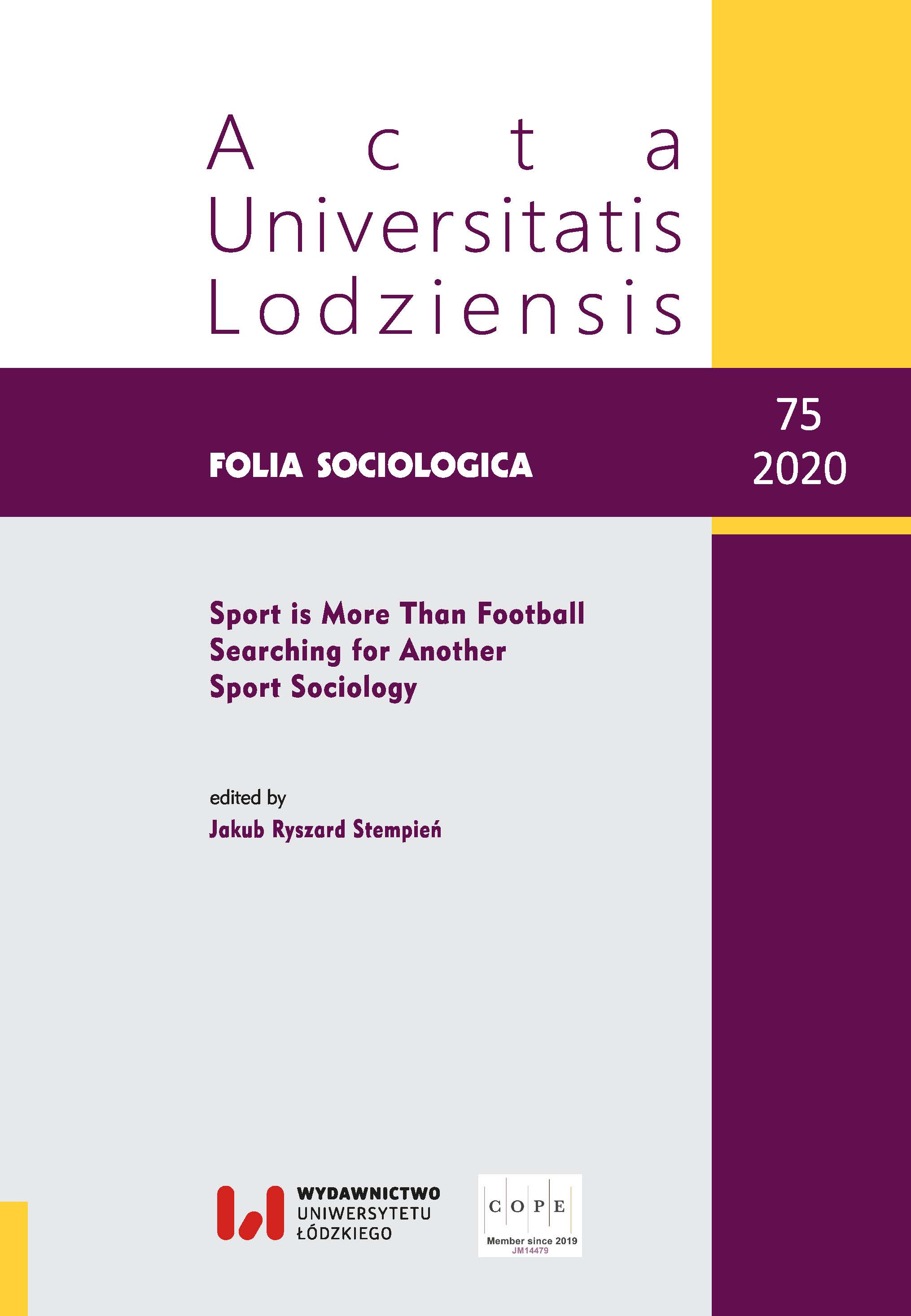Sport in the time of transformation in Poland. Gdańsk case study
Sport in the time of transformation in Poland. Gdańsk case study
Author(s): Dobrosław MańkowskiSubject(s): Sports Studies
Published by: Wydawnictwo Uniwersytetu Łódzkiego
Keywords: sociology of sport; sports club;transformation;social change; sociology of transformation
Summary/Abstract: Various areas of social and economic life and their changes during the political transformation after 1989 have been studied and analyzed by Polish sociologists. It seems that one of the areas that has been left out and which constitutes a terra incognita is the world of sport. As in other areas, individual and collective social actors who organized, managed or participated in the world of sport had to come to terms with the new social, economic and political order. That is why the transformation seen through their eyes and what they did, their motivations and ways of coping with changes are interesting and broaden our knowledge about the transformation period. In the article, I present a fragment of my own research on the course and effects of political transformation, based on the example of a multi-sectional Workers’ Sports Club Stoczniowiec Gdańsk (currently GKS Stoczniowiec Gdańsk). I was interested in the struggles of people who organized sport, which they had to face in the period of transformation. I was interested in how they experienced the clash with the emerging new social order. What strategies they adopted in their organizational activities and their practices during the transformation. The case study is treated as a field study and a conceptual pilot study which is a starting point for further exploration. I used two methods: desk research (among others, press articles, club information, official data, statistical data were collected) and in-depth interviews (IDI) with social actors operating in the sports club. The analytical framework for the study consists of three dimensions of transformation, namely the economic, political and legal, and social ones. The theoretical foundations, on the other hand, are the perspectives of new institutionalism, especially the theory of fields by Fligstein and McAdam and the concept of deinstitutionalization by Christine Oliver.
Journal: Acta Universitatis Lodziensis. Folia Sociologica
- Issue Year: 2020
- Issue No: 75
- Page Range: 101-120
- Page Count: 20
- Language: English

